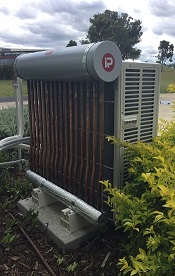Energy Saving In New And Existing Air Conditioners

With rapid advances in science and technology, several techniques can be implemented in heating, ventilation and air-conditioning systems (HVAC) to improve their energy efficiency and reduce environmental impact. In contrast to traditional HVAC systems, energy-efficient HVAC systems boast lower energy consumption requirements, lower running costs, and reduced greenhouse gas emissions.
These systems have also been proven to play an important role in managing energy usage targets, slowing energy price growth, maintaining energy security and mitigating the impacts of climate change. Thus, widespread installation of energy-efficient HVAC systems would play a critical role in reducing peak electricity demand, as well as assisting home and building owners to manage the costs associated with indoor climate control.
Our researcher proposed a synergetic framework of the system identification, optimisation and robust control of a designed energy-efficient air-conditioning system to target energy efficiency and environmental sustainability in buildings. Field tests have been carried out and the product is in the market.
Doctor Vahid Vakiloroaya
Senior Lecturer
Research interests include: Thermodynamic, heat transfer, solar energy, fluid mechanics, industrial ventilation and HVAC sustainable development.


